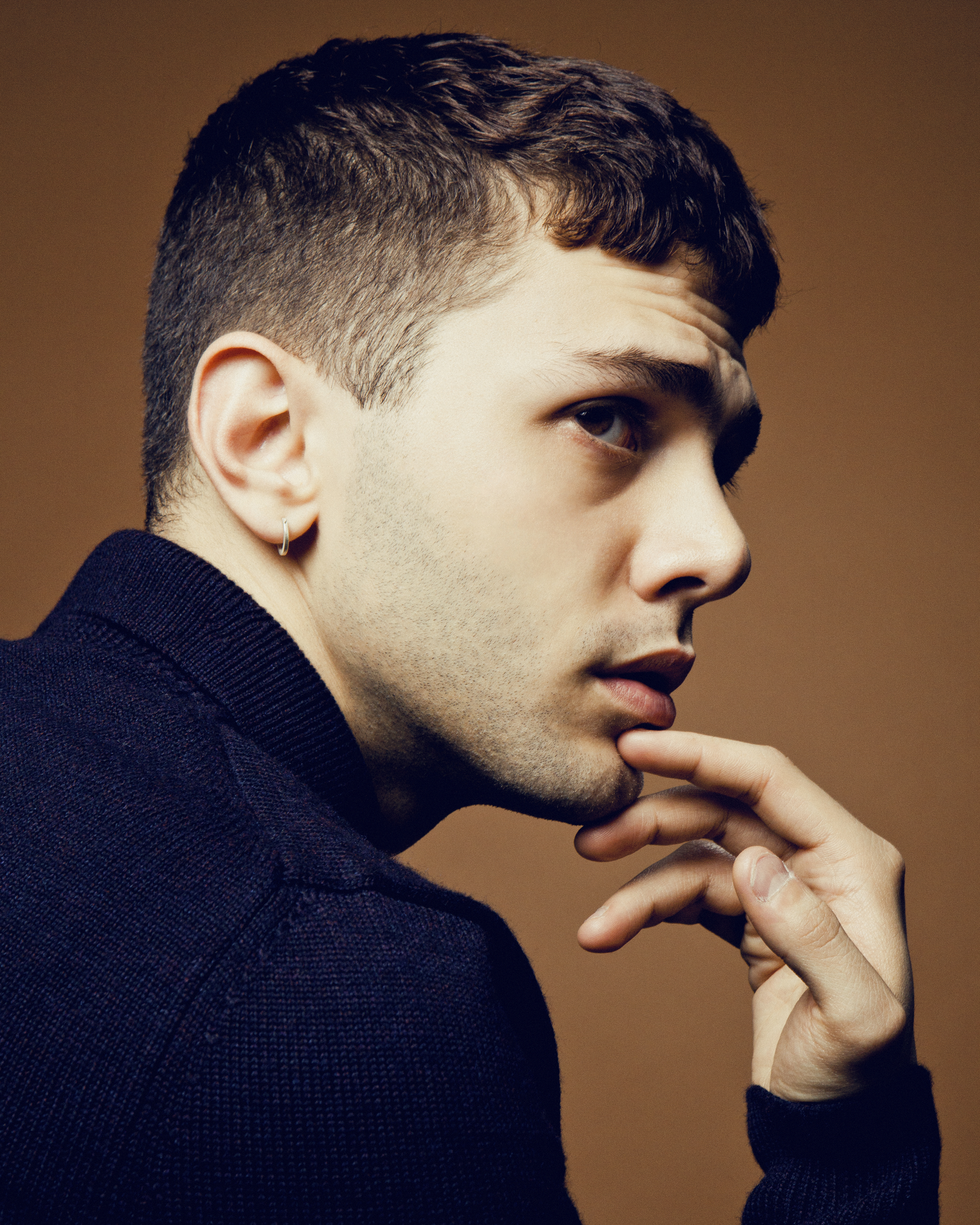
There’s a moment in Xavier Dolan’s new film, Mommy, when a troubled young man tells his mother that he’s afraid she’ll stop loving him. She offers a heartbreaking response that cuts to the core of the complicated relationship between parent and child: “What’s going to happen is, I’m going to be loving you more and more, and you’ll be loving me less and less. That’s just the natural way of life.”
Such insight may not be the type of wisdom viewers would expect from Dolan, a 25-year-old actor, writer and director considered the enfant terrible of Canadian cinema. Dolan, who has written and directed five feature films, is a controversial figure in the international film scene; he notoriously joked that Orson Welles, whose Citizen Kane was released just days before his 26th birthday, was “lazy” and “a late bloomer.” Dolan’s critics deride his work as narcissistic and smug. But Mommy won the Jury Prize at last year’s Cannes Film Festival and earned a 13-minute standing ovation as well as rapt praise from jury head Jane Campion, the Oscar-winning director of The Piano. Profound and provocative, Mommy, which opens in limited release on Jan. 23, proves that even wunderkinds can grow up.
“I wanted to use Mommy as a vehicle to propel myself towards another sort of filmmaking,” Dolan says in brisk, lightly accented English over lunch at a Manhattan restaurant. He’s wearing a cornflower blue leather jacket and picking at tuna tartare; he looks more like a high-fashion model than a French-Canadian kid from the suburbs known for making challenging, deeply personal films. “I feel like I’ve entered a new cycle that’s more about characters and storytelling than stylistic exercises or formal explorations.”
Dolan might talk like a film-school graduate, but he’s mostly self-taught. He was born and raised near Montreal, where his father Manuel Tadros became a successful musician and performer after emigrating from Egypt. Growing up, Dolan had a fruitful career as a child actor, especially with voice work for French-Canadian translations: he dubbed the dialogue of Ron Weasley in the Harry Potter films and played Stan on South Park. But as a teenager, he had a turbulent relationship with his mother Genevieve, who ended up sending him to boarding school.
Their struggles served as the inspiration for his semiautobiographical first film, I Killed My Mother, produced with money Dolan had saved from acting gigs and the help of government arts funding. Written when he was 16, the film starred Dolan as a fictionalized version of himself–a surly, temperamental gay teen–opposite a frustrated, hotheaded version of his mother, as played by the venerable French-Canadian actress Anne Dorval. The film premiered at Cannes in 2009, when Dolan was 20, and won three awards.
He followed that with three more films shot in quick succession: 2010’s Heartbeats, about two friends who fall in love with the same man; 2012’s Laurence Anyways, the dreamy tale of a transgender woman’s romantic life, executive-produced by Gus Van Sant (Good Will Hunting, Milk); and the 2013 thriller Tom at the Farm, adapted from a stage production by Québécois playwright Michel Marc Bouchard.
Now, with Mommy, Dolan is on the brink of directorial stardom. It’s easily his best film, bitterly funny and emotionally wrenching, and it smooths the rough edges of his early promise. Like his debut, it’s about a mother and her son, with the maternal role again filled by Dorval, who plays Diane, a widowed mother of a manipulative, charismatic boy, Steve. But here the son is played by the young actor Antoine Olivier Pilon instead of Dolan. Pilon gives a dazzling, dynamic performance that hums with dangerous hyperactivity. The fraught relationship between mother and son, at turns violent and tender, has a rare rawness and vitality.
It helps that Mommy was shot in a distinctive 1:1 aspect ratio–a square with black boxes on either side, rather than a rectangle that fills the whole screen–which Dolan says he did to make the frame feel more intimate. (He finds comparisons to Instagram irritating: “Remember the Polaroid?” he says, rolling his eyes.)
Mommy has art-house appeal, but there’s also something doggedly commercial about Dolan’s work–an affection for big emotional fireworks that’s unusual amid the muted tones of indie film. When asked for his influences, Dolan cites Home Alone, Jumanji and, most of all, Titanic. It’s no surprise that his next film is a play for broader success. The Death and Life of John F. Donovan, which begins production this summer, will be Dolan’s first English-language film; Jessica Chastain, Susan Sarandon, Kathy Bates and Kit Harington (Jon Snow on Game of Thrones) have already signed on. There’s a lot riding on it, for Dolan at least. “If this movie isn’t seen by the public, it is a failure in itself,” Dolan says. “An abysmal failure.”
He probably shouldn’t be worried–his star is clearly on the rise. Dolan is on the cover of fashion magazines, and he recently signed with the same talent agent as Brad Pitt. Mommy is already in his rearview mirror–he’s eager to get started on something even more ambitious.
“I’m proud of it,” he says of Mommy. But? “I’ve been talking about this film for nine months now,” he says with a sigh. For him, that’s an eternity.
More Must-Reads from TIME
- How Donald Trump Won
- The Best Inventions of 2024
- Why Sleep Is the Key to Living Longer
- Robert Zemeckis Just Wants to Move You
- How to Break 8 Toxic Communication Habits
- Nicola Coughlan Bet on Herself—And Won
- Why Vinegar Is So Good for You
- Meet TIME's Newest Class of Next Generation Leaders
Contact us at letters@time.com